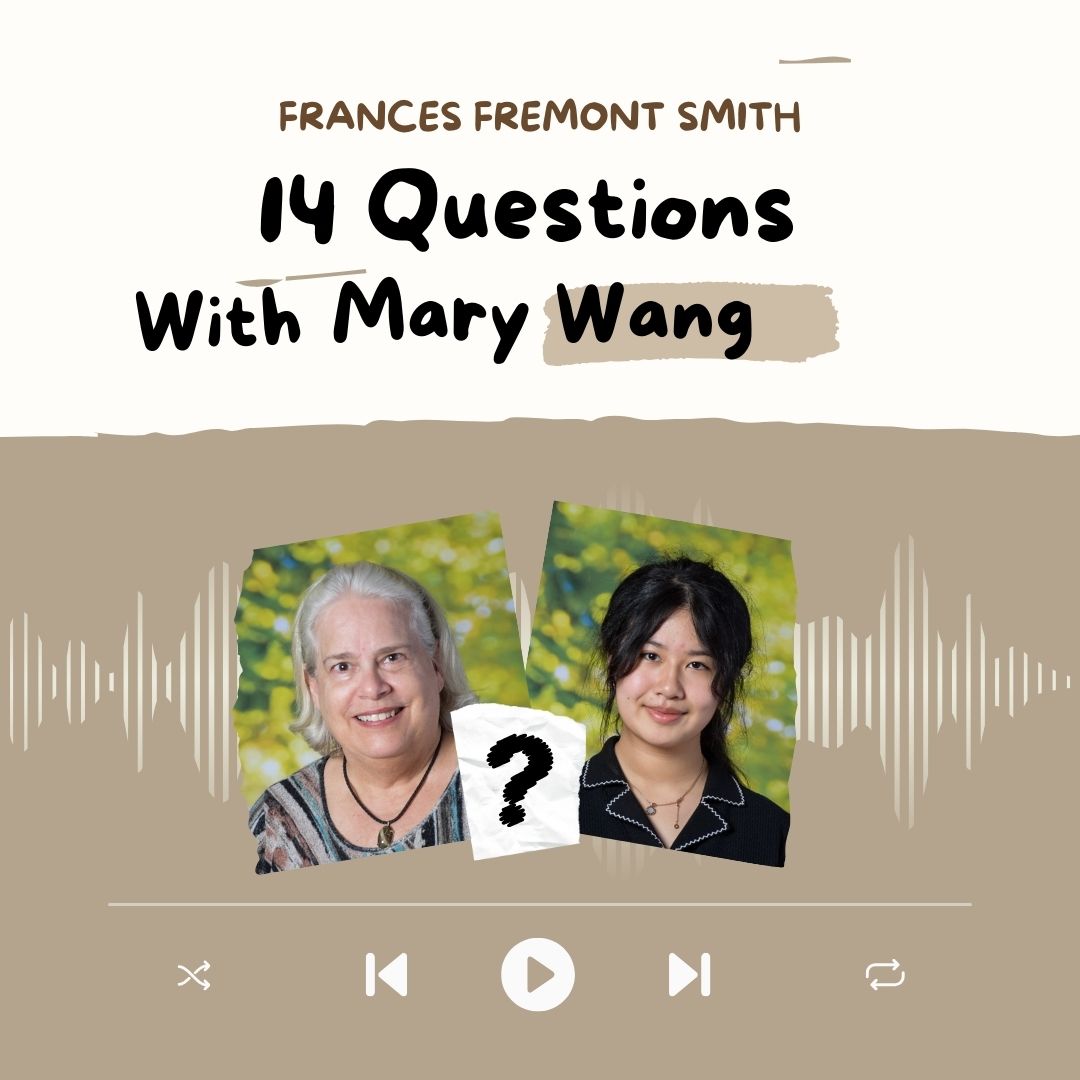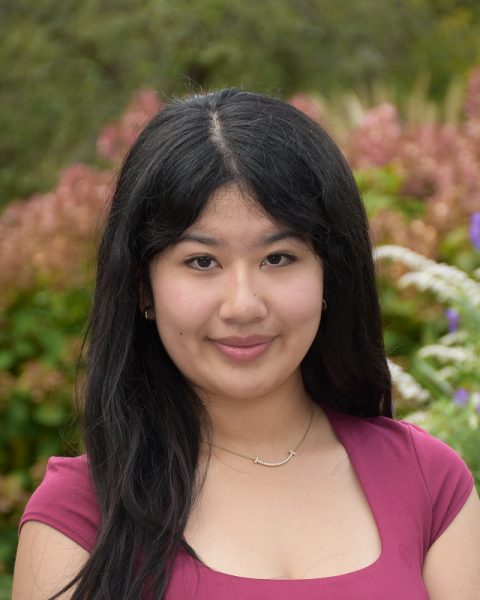Name: Pete Slaski
Clases: Algebra II, Algebra II Foundations, AP Statistics
Spaces: Chase 144
Time here: 14 years
Q1. In one sentence, how would you describe yourself?
A1: I am a friendly and fun-loving teacher, parent, husband, brother, and son.
Q2. Why did you start teaching math?
A2: My dad is the oldest of seven and almost all of his brothers are engineers. My father is an engineer and my brother is an accountant. We are a family that likes math, and as you know, I'm just someone who likes to talk a lot.
Teaching seemed like a really good fit to me. I think I chose to teach math also because it was something that when I was a student, I was good at.
Q3. What is your favorite field of math?
A3: Definitely statistics. I teach AP statistics, and I think it's really very applicable to everyday life. It's something that a lot of students would use across different fields, even in psychology or higher education where you are doing surveys. In Algebra II, students often have the question of “When am I going to use this?” In reality, they probably won't because there aren't a ton of calculus-based fields out there. I never get that question for Stats because I think students see the everyday uses of statistics.
Q4. Talk to us a little bit about the New York Jets team (and the color green)
A4: I grew up in New York and I am a big New York sports fan. Jets and then Matt's baseball are the two teams that I follow most closely. The color green is also my high school color - our colors were also green and white where I went to college. At Brimmer, our colors are green and white as well. Green has been my favorite color since I was in first grade when I watched Gumbia's - an old claymation cartoon from the sixties and seventies. I haven't watched one in like 40 years, but I always liked Gumbia. My teacher from first grade asked us for our favorite color. I was writing sentences, and I said green is my favorite color because I love Gumbia. The color green just happened to work and became a part of many things I love.
Q5. Talk a little bit about your experience growing up.
A5: I grew up having older brothers two years older than me. We were pretty competitive and spent a lot of our free time playing wiffle ball or basketball. I played youth league baseball and basketball, and my father was the coach of some of those teams. When I got to high school, I played soccer and lacrosse and I continued to play lacrosse in college. I always loved team sports and I find them to be great. It's just not classroom learning, but learning how to deal with people and how to coexist in a space with them.
A lot of my memories growing up are playing sports and even in college, all of my friends that I stay in touch with are all guys I was teammates with in sports. My parents were very supportive as well. They would always come to all my high school games. My brother and I are going to the Boston Garden tonight (March 29th) to watch a game, and he flew into town from Virginia just today. We're still very much big fans.
Q6. What is one thing about you that will surprise your students/colleagues?
A6: I had a cardiac arrest last year and I was in the hospital in intensive care for 10 days. I have a pacemaker which helps my heart go now. I'm living a normal life, and everything seems fine. That's something that most people probably don't know. I am glad to have such excellent doctors so I'm back to living my normal life.
Q7. What is a hobby of yours you really enjoy?
A7: My number one hobby is running. It’s great not only for physical fitness, but also for mental health. Sometimes you don't want to do it, but I force myself. Mr. Curtis and I go out a few days a week - we're both parents, and it's good therapy for the soul and the body. I try to run three or four times a week anywhere from three to five miles. It's nice to have a conversation or if I'm running myself. I usually just listen to a podcast, something really low key and just to kind of tune out.
Q8. What’s your favorite mathematical equation?
A8: The Quadratic equation. Students often ask, “why do I need to know this, and it does have obvious applications?” It is a silly equation and I think it's one thing that when students come back and visit they would ask, “are you still teaching the quadratic equation?” It's just something that everyone remembers.
Q9. What’s your favorite thing about Brimmer?
A9: How we get to know the students, since we're such a small school. I've worked at a boarding school before, and you do get to know the students incredibly well because you're working with them on campus and during evenings and weekends. However, Brimmer gives the students an opportunity to do lots of things and I really like that. I normally teach students a few times and through things like cross-country and chess club so we know everyone in the school pretty well.
Q10. What is your favorite Brimmer lunch?
A10: Historically, my favorite lunch was the corn and cheese empanadas, but I don't think they've made those recently. I will say it is either fried rice or lo mein with steamed broccoli and the edamame dumplings. They also have barbecue pulled pork with cornbread. There's lots of good lunches here and every day I'm usually excited when I walk down there.
Q11. Can you tell us more about your experiences coaching Softball this year?
A11: I think I have a passion for team sports for the interpersonal skills and teamwork skills that people can gain. From the coaching side of things, I think it's a lot of fun to be able to work with students you know: not everyone loves math class, so sometimes I get to know them through cross-country or through another sport, and they're completely different. It’s nice because they don't have the stress of being in class, so you get to know them more personally and joke around with them. I just started softball this week with Mr. Barker-Hook, and it's been a lot of fun so far.
Q12. Recently, what makes you happy?
A12: My son is dyslexic and he had a really tough time reading in first grade. Lately he was kind of losing his confidence and not really liking school, but he's had some really great teachers in tutoring. He’s on track and he's reading and I was reading to himself before bed. Just seeing my son learning to battle his dyslexia, the fact that he's doing really well and that he's reading for fun is amazing and something which I wouldn't imagine would have happened last year.
Q13. What is one goal you wish to accomplish in the near future?
A13: Going back to my hobby, I'm really training to run a half marathon over Memorial Day weekend in May. That's less than two months away, so I'm hoping to get myself into really good shape to do that. I've been trying to improve my mileage and amount of times I go running. I’d say that would be a goal of mine - to not only run the half marathon, but also feel good.
Q14. Around this room, we see many old things like butterfingers. Which artifact in your room would you like to talk more about today?
A14: It’s always fun. Marlie’s suggestion box originated from when she was in my class in seventh grade: she went to turn-in a paper homework, and I said we'll put it in the suggestion box and as a joke, I just covered it up and threw it in the trash can. When she was older and in the steam lab, she made a vinyl sticker that said suggestion box and she just had put it on there. I thought that was really cute and she is such a sweet kid, but now unfortunately, when I see the trash I also think of Marlie.
The butter finger was from one of my advisees six years ago, Paxton, who I had a bet with because I don't think he was preparing enough for his pre calc exam. He said he would get an A- and I bet him a butter finger. I think he got a B+ and gave me the butterfinger, but I didn't feel like eating it that day so I just put it up there and it stayed. I always like goofy little things like that and I have a hard time throwing stuff like that away because I always think it makes me happy and I think of my students.
Editors' note: This is a partial transcript of the podcast, edited for concision.



